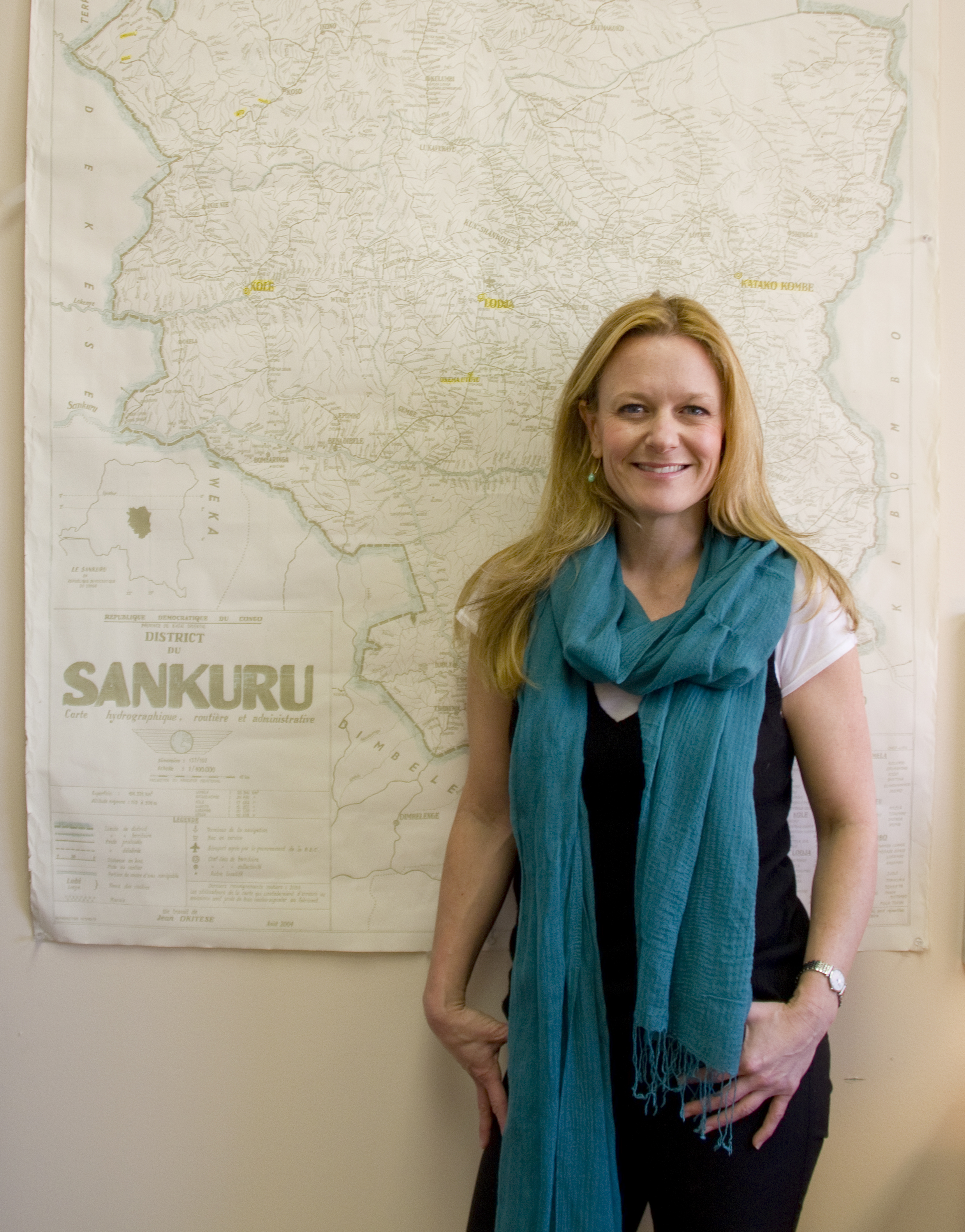Rumors spread quickly when Anne Rimoin and her team arrived at a remote village in the Democratic Republic of the Congo in 2002 to take blood samples from every person over the age of 1.
Some villagers believed the UCLA assistant professor in epidemiology and her team were stealing blood for white Europeans to stay young, Rimoin said. In fact, the team was taking samples to get specimens of human monkeypox, a disease affecting the people of the village.
Rimoin is the leader of a team of researchers, doctors and nurses who continue to study and document the epidemiology of the disease, which manifests itself in ways similar to smallpox.
After the team explained what it was doing, Rimoin said the villagers were very friendly and eager to help.
“Once you explain why (you are there), they absolutely understand what is going on and know about monkeypox and are really open to collaborating,” Rimoin said.
After receiving her doctorate from Johns Hopkins University, Rimoin was offered a job by the National Institutes of Health. The job would entail setting up clinical sites in places including the Congo, which was in the midst of the Second Congo War.
The NIH probably expected her to “run out the door screaming,” Rimoin said. But instead of running, she simply asked when she could start.
Nine years after her trip in 2002, Rimoin, as a UCLA researcher, still travels back to the Congo several times a year. She now conducts her own research, leading her team of scientists, nurses and doctors.
Instead of waiting for Congolese patients to come to her, Rimoin and her team are out in the field, working with the national government to seek out monkeypox cases.
That requires heading out on motorcycles to remote villages, collecting specimens when a suspected case of monkeypox presents itself, said Neville Kisalu, a graduate student in microbiology, immunology and molecular genetics and Rimoin’s former lab manager.
Back in the lab, both in the Congo and the U.S., the team analyzes the data not only to determine if the incidences of monkeypox have increased over time, but also to see if the disease has become more virulent.
The team’s current data shows that monkeypox is on the rise in the Congo. The surge in smallpox cases may be caused by the virus’ increased capability to transfer from person to person, Rimoin said.
Rimoin’s team also helps treat those affected by the disease. For Kisalu, treating the victims, especially the children, was one of the most satisfying moments of his time with the research team.
“These are children that didn’t have any hope, affected by a disease they didn’t have any medicine for,” he said. “So for me, (Rimoin’s work) was something tremendous, something so special to me.”
Her work is not without its struggles, though.
The Congo is the cradle of many new viruses and is one of the most coveted places to work in the world for epidemiologists, said Kirstin Chickering, Rimoin’s administrative director. But it is also one of the most difficult places to conduct research because the country has poor infrastructure, which makes it expensive and time-consuming to gather and analyze samples in the work, Chickering said.
Because amenities such as electricity are not as readily available, Rimoin had to devise innovative scientific methods of keeping samples frozen in the jungle.
Travel can also be logistically challenging in terms of coordinating flights and take-off times, Rimoin said.
But the work is deeply rewarding, she added. She has received support from the Congolese people and their government.
When Rimoin first arrived in the Congo, she said she made sure to work with the Congolese government to come up with a project that would address the country’s growing number of cases of monkeypox.
“I think people often come into these situations in other countries and impose projects on people, but with my collaborators in the (Congo), I came in with a lot of support by really getting consensus … from the very beginning,” Rimoin said.
From a young age, Rimoin was always interested in Africa, especially after seeing her parents travel there to study pygmies. Because she got her undergraduate degree in African history, spoke French and learned the local language, it was easier for her to gain acceptance among the Congolese people.
“Because I had a real appreciation for the country and a real love for Africa and I was really enthusiastic, it just clicked and I worked really well with the Congolese,” Rimoin said.
Training the Congolese to go into the field and record data, while she oversees the research and seeks funding for the projects, has led to the program’s success, Rimoin said.
She also credits her fellow scientists ““ she calls them heroes.
